Do They Still Sell or Make Cheese Tidbits
Some trivia tidbits are so surprising that it can be hard to believe that they're even accurate. But while you shouldn't trust everything you read online, we've gone ahead and done the research to find 70 fully verifiable weird and amazing facts you can use to impress your friends. Do you know which video game company has been around since the 19th century, how a cricket can help you tell the temperature, or how your dog evolved to give you "puppy dog eyes"? Read on to learn the answers to those questions—and 67 more.
RELATED: 75 Trivia Questions Only Geniuses Can Answer.

The key ceremony is a (perhaps now not-so-very) secretive meeting of some powerful people who have a staggering amount of control over the internet. As reported by The Guardian, these seven keyholders are handpicked security experts who meet quarterly and whose individual digital keys "create a master key, which in turn controls one of the central security measures at the core of the web." The experts have exclusive access to the domain name system (DNS), which is basically the directory of everything online, "as part of a new global effort to make the whole domain name system secure and the internet safer." Every time they meet, they flush out fake and dangerous web addresses.
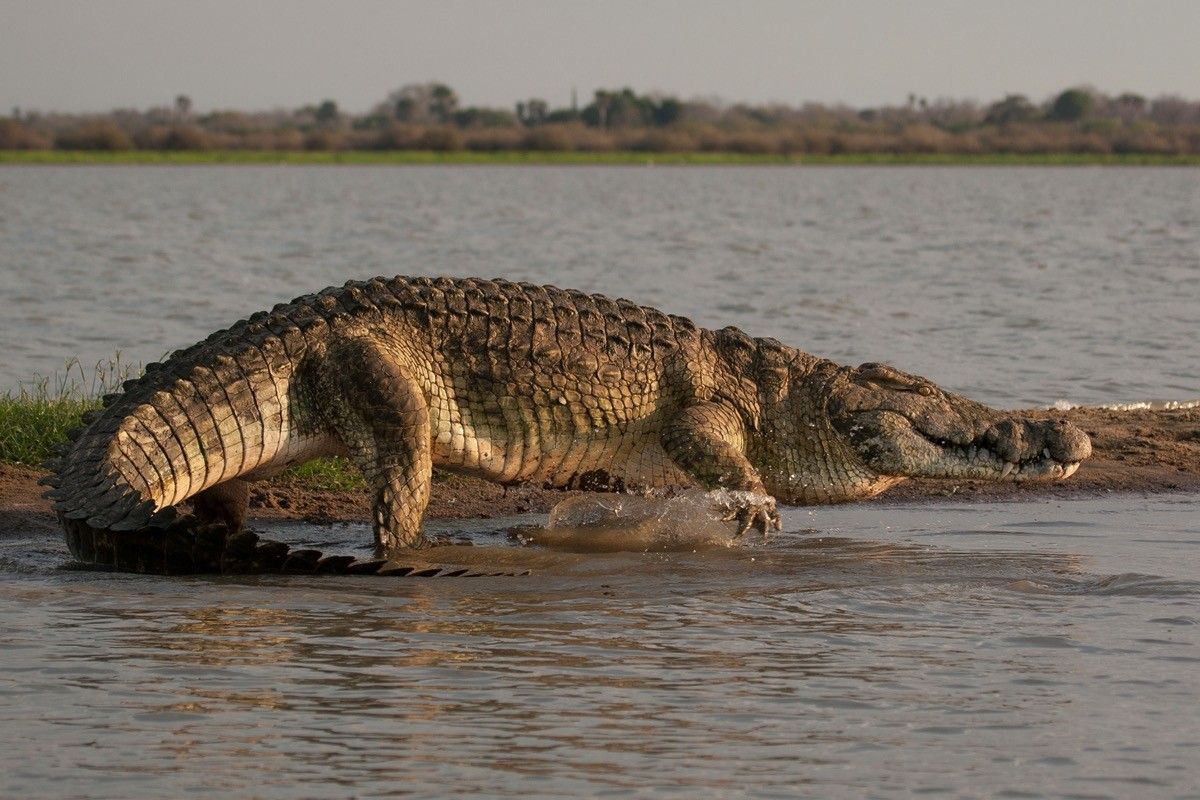
It's likely horses you picture bounding across a landscape, not something scaly and low to the ground. However, a study published in Nature in 2019 noted that crocodiles have the "full range of quadrupedal footfall patterns used by mammals," meaning that they have the ability to gallop like a horse—and occasionally do! Of course, they don't look quite as graceful, but they can reach speeds of up to 11mph.

You remember from grade school that all humans are made up mostly from water, but never more so than right after we're born. Newborn babies are 78 percent water, according to NASA, while adults drop down to around 55 percent to 60 percent.

There are a lot of things happening in our bodies that we have no control over. For instance, most of us can't control the size of our pupils unless we do something like alter the amount of light that is directed into our eyes. However, in a study published in the International Journal of Psychophysiology in 2021, researchers observed a man who can apparently change the size of his pupil on command. Currently, he is the only individual known to be able to do this—although you could give it a try if you want!

When you fall asleep at night, do you prefer to be in a fetal position, flat on your back, or sprawled out on your stomach? There may be more to how you sleep than just what makes you comfortable. According to The Telegraph (via Dreams.co.uk), sleep experts have found a correlation between a person's preferred nightly position and their personality. For instance, director of the Sleep Assessment and Advisory Service Chris Idzikowski explained that people who opt for the fetal position "may appear tough but are actually sensitive souls right to their core."

The University of Illinois Urbana-Champaign horticulture educator Martha Smith notes in a 2011 article that, back in the 1620s, "tulips were worth more than gold." Why were these particular plants so pricey? "Initially the tulip was a rarity only the very wealthy could afford," she further explains. Indeed, at the time, a single "Rembrandt-type bulb reached the equivalent of $1,500," which "was 10 times the annual income of a skilled craftsman or the price of a large house."

Geocaching is an international game that involves players deciphering clues and going on stash-seeking adventures, using GPS and a geocaching app—kind of like a digital/analog combination scavenger hunt. As of 2008, there's even a geocache target to be found on the International Space Station.

Cleopatra was an incredibly powerful ruler who could indulge in the kind of luxuries others could never even imagine. For example, when she was vacation on Sedir Island in Turkey, she wasn't satisfied with the beaches. So her lover Mark Antony had the white sand that she preferred brought all the way from Egypt so that she could enjoy it on foreign shores. Sedir is now known as Cleopatra's Island for this reason.

These days, the Olympic Games are where top athletes from all over the world come together to compete. However, between 1912 and 1948, the international event also handed out medals for creative practices, such as painting, sculpture, architecture, literature, and music. This tradition ended, though, when it was decided that the artists' professional pursuits conflicted with the nature of the competition.

According to a study conducted by researchers at the Osservatorio Astronomico di Padova and published in Nature Astronomy in 2021, a quarter of sun-like stars have a habit of swallowing up the planets around them. However, it's not likely that Earth will have to deal with this issue as the study focused on systems that have binary pairs of stars instead of a single one like our own.

Some shoes designs prioritize style over comfort and that certainly seemed to be true back in medieval times. During the late 14th and early 15th centuries, shoes could be up to two feet long, according to the Victoria and Albert Museum. The toes of the shoes were usually filled with hair, wool, moss, or grass.
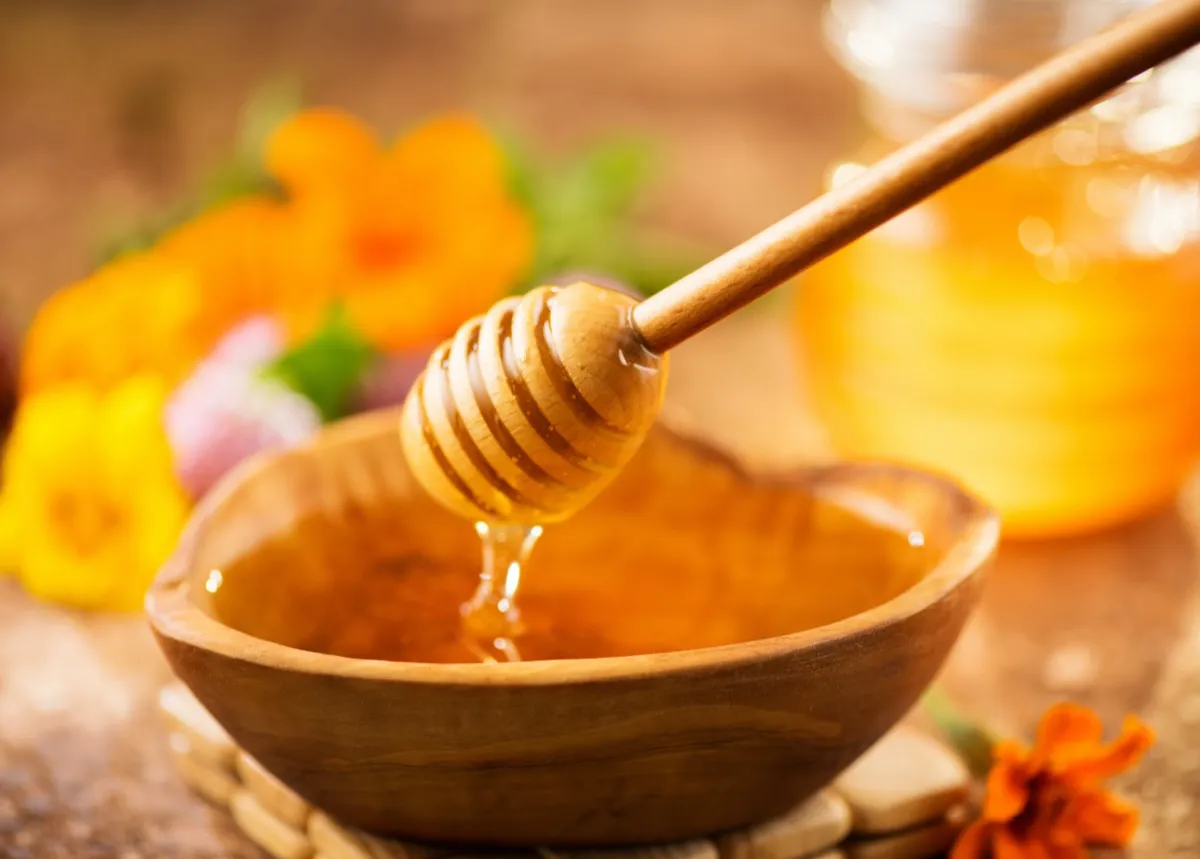
If dandelions invade your yard each year, consider turning them into a tasty treat. Pick a bunch of the yellow weeds, grab a few other ingredients (lemon, vanilla bean, or sugar), and after a few simple steps, you'll end up with delicious dandelion honey. Try these recipes from Vegan on Board and The Spruce Eats.

Having your tonsils removed isn't exactly the most pleasant experience but once it's done, at least you never have to deal with it again…right? Not necessarily. According to Johns Hopkins, if not all of the tissue was removed during the procedure, then tonsils can grow back.

Before Abraham Lincoln was a politician, he was a wrestler. With over 300 matches to his name, Lincoln only lost once and was so successful possibly due to his height—he was 6 feet and 4 inches tall—or perhaps because, according to History, he "reportedly talked a little smack in the ring." Whatever his tactics were, they worked, which is why he was recognized with an "Outstanding American" honor from the National Wrestling Hall of Fame. They even once hosted an animatronic Abraham Lincoln.

"It has been known for many years now that ultraviolet radiation from sunlight increases testosterone levels in males, and we also know that sunlight plays a major role in both the behavioral and hormonal regulation of sexuality," explains Carmit Levy, who was behind a study published by Cell Reports in 2021. That research found that UVB light—which also comes from sunlight—boosts "romantic passion" in both genders.
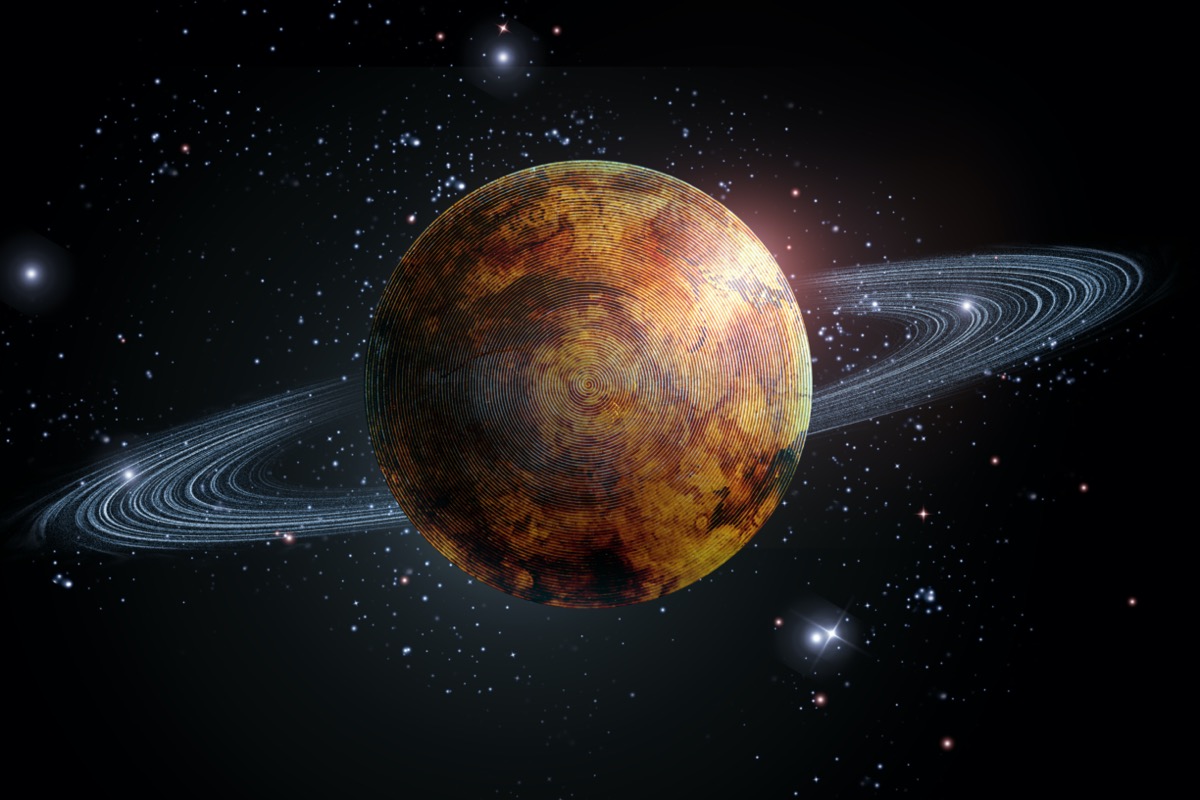
Looking at information from NASA's Cassini spacecraft that focused on Saturn's rings, astronomers found that the planet has a diffuse core—also known as a fuzzy core. Caltech's Christopher Mankovich, who co-authored a study published by Nature Astronomy in 2021 about the findings—explained, "The fuzzy cores are like a sludge. The hydrogen and helium gas in the planet gradually mix with more and more ice and rock as you move toward the planet's center." He added, "It's a bit like parts of Earth's oceans where the saltiness increases as you get to deeper and deeper levels, creating a stable configuration."
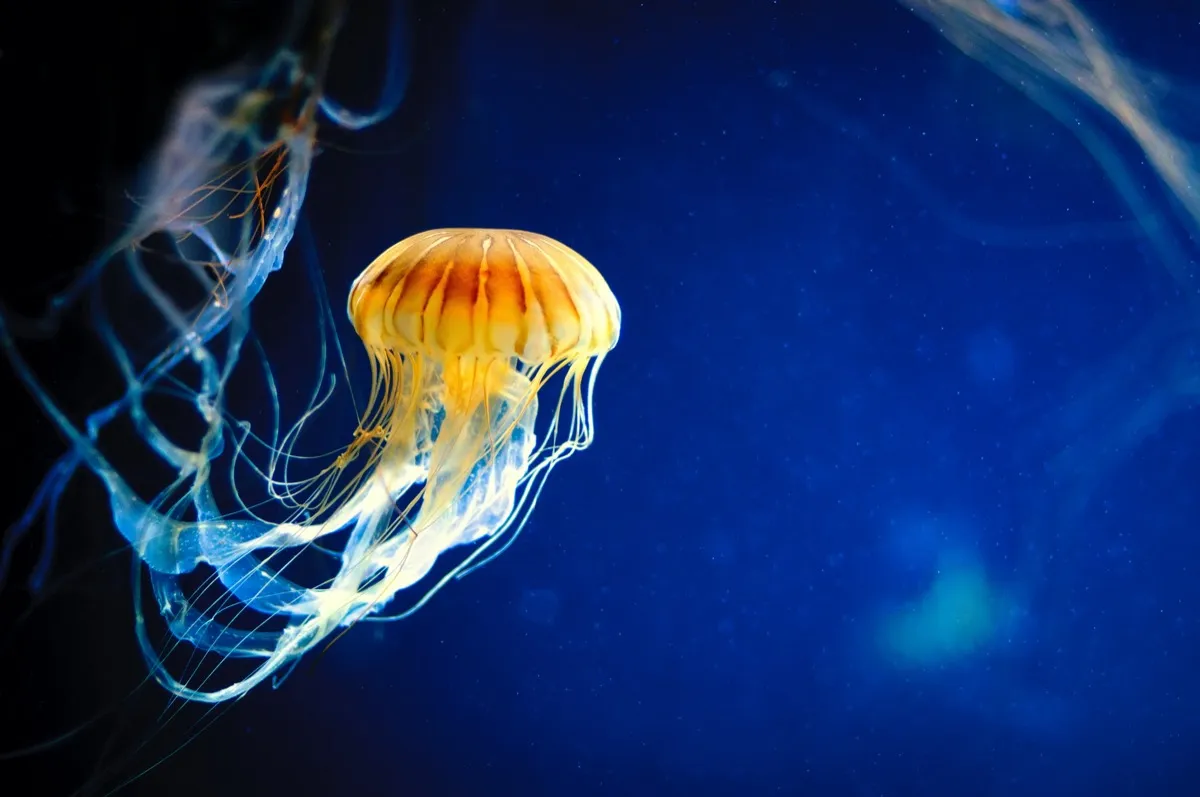
Jellyfish are fascinating creatures for many reasons. They come in a range of shapes, sizes, and colors and are able to deliver a powerful sting. But perhaps the most amazing aspect of these animals is surely the fact that one type, the Turritopsis dohrnii, responds to potentially dangerous conditions by reverting back to an earlier form and starting its growth process all over again. This, in a way, makes them immortal.

Star Trek fans know that when the doors open and close on the show's starships, they make a distinctive whooshing sound. Michael Coleman of SoundWorks Collection videos filled Wired in on some of the techniques used to capture noises for the series by sound designers, including the flushing toilet recording used for the doors. "You don't just go to a library and pull up an Enterprise door sound," Coleman noted. "Someone has to create it. Creating an environment for these kinds of questions is really what this series is about."

A study published by Nature Evolution and Ecology in 2021 found that all dogs today have patterns that stem from five coats that originated in ancient times. "While we think about all this variation in coat color among dogs, some of it happened long before 'dogs' were dogs," Professor Danika Bannasch from the University of California explained in a statement to EurekAlert! about the study she co-authored. "The genetics turn out to be a lot more interesting because they tell us something about canid evolution."

Chances are, you've always known the chocolate-chip-craving blue guy from Sesame Street strictly as Cookie Monster. But that's actually his nickname. Cookie Monster has a real first name, and it's apparently Sid. Yes, Sid.
RELATED: The 60 Most Interesting World Facts You'll Ever Hear.
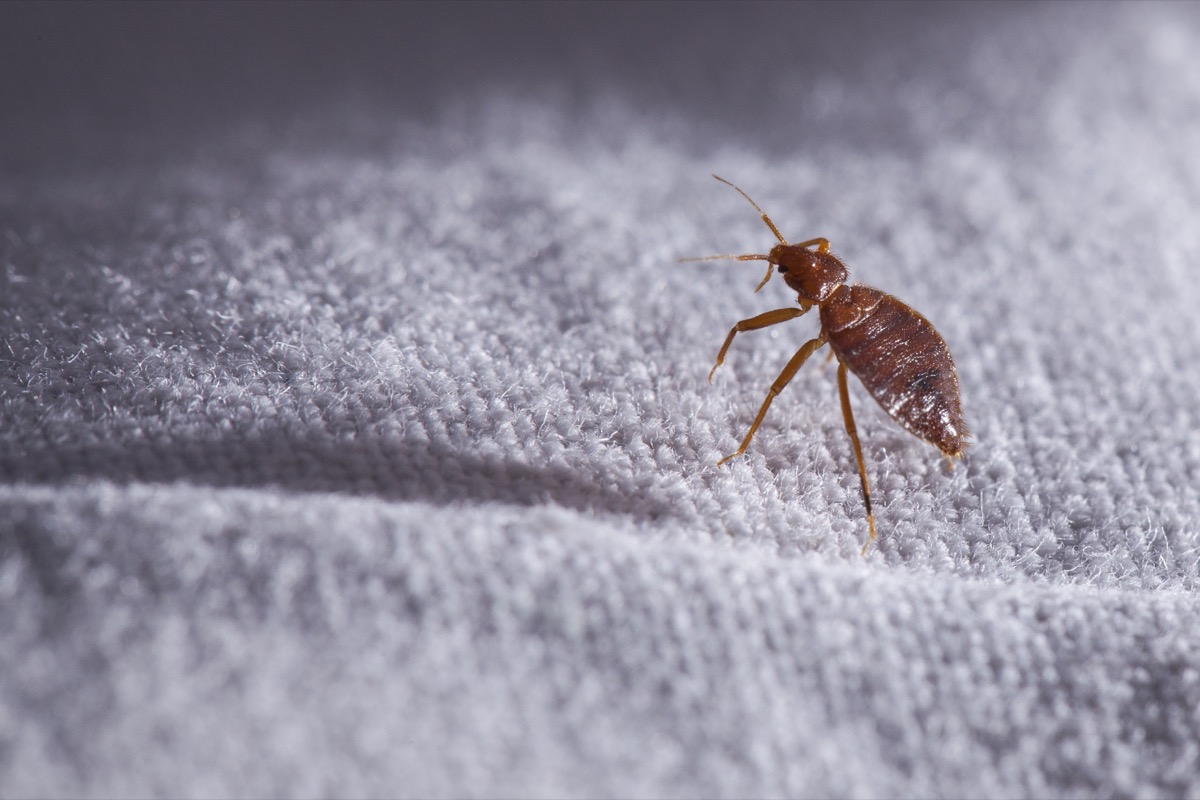
Bed bugs are almost impossible to get rid of and can spread faster than water cooler gossip. But that might also be why they've managed to stick around for so long. Scientists believe that the bugs have existed since the time of the dinosaurs, coming onto the scene about 115 million years ago, according to a 2019 study in Current Biology.
"To think that the pests that live in our beds today evolved more than 100 million years ago and were walking the earth side by side with dinosaurs was a revelation," said researcher Mike Siva-Jothy. "It shows that the evolutionary history of bed bugs is far more complex than we previously thought."

It's not always easy being a left-handed person in a right-handed world. In fact, it can be downright dangerous. According to The Mirror, more than 2,500 people who are left-handed die every year due to an injury caused by using equipment designed for people who are right-handed. Apparently, "the right-handed power saw is the most deadly item."

The number of thunderstorms you witness tends to depend on where on the planet you live. For instance, the U.S. experiences an estimated 100,000 thunderstorms each year. However, overall, there are 16 million thunderstorms annually on Earth. That breaks down to about 2,000 thunderstorms at all times, according to the National Severe Storms Laboratory.

He's not just flying around without any authority! In 1927, Saint Nick got a pilot's license from the assistant secretary of commerce for aeronautics, William P. MacCracken.
According to the Library of Congress, Santa had his picture taken as he was given his license, airway maps, "and the assurance that the lights would be burning on the airways on Christmas Eve."
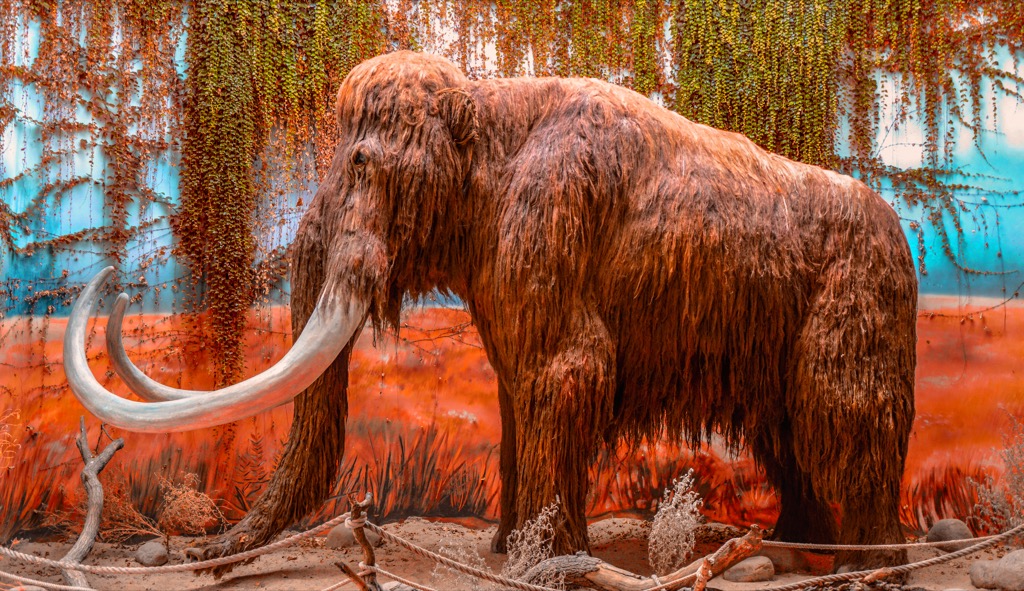
We tend to think of woolly mammoths as ancient creatures who roamed the Earth long before humans hit the scene. But the fact is, these giant animals were still here when the Great Pyramid of Giza was built, around 2580 to 2560 BC. The last woolly mammoths disappeared from Wrangel Island in the Russian territory of the Arctic Ocean just 4,000 years ago, according to the BBC.

Shellac is sometimes called "confectioner's glaze," due to the fact that it gives a shiny coating to candies like jelly beans and candy corn. But whatever you happen to call it, shellac, which is also used as a brush-on colorant and a wood finish, comes from the excrement secretions produced by female Kerria lacca insects. In other words, it's bug droppings.

When you sneeze, your eyes automatically close for a moment. But if you sneeze in a car that's traveling at 60 mph, then your eyes will be closed for around 50 feet. According to one 2014 study by Halfords Autocentres, drivers who temporarily lose vision due to sneezing are the cause of 2,500 accidents every week in England.

Yes, even though they don't have outer ears, chickens do have earlobes, and they vary in color, from white to much darker varieties. That's probably not that surprising, but the correlation between earlobe color and egg color certainly is. Chickens with white earlobes lay white eggs, while chickens with darker brown earlobes lay—you guessed it—brown eggs.
And this doesn't just apply to the most common egg varieties you'll find at the supermarket. Araucana chickens are known for their pale blue eggs—and sure enough, those chickens' earlobes are a similar hue.

When you think of Nintendo, you probably think of the video game consoles that you or your kids grew up with: Super Nintendo, Game Boy, Wii, and, most recently, the Nintendo Switch. But the gaming company didn't just spring up in the '80s: In fact, Nintendo was founded in 1889. Of course, the company thatFusajiro Yamauchi started over 130 years ago doesn't bear much of a resemblance to the Nintendo we know and love today. The original Nintendo sold playing cards and went through several major changes over the decades. It wasn't until the 1970s that the company started branching out into video games.
And for more fun content delivered straight to your inbox, sign up for our daily newsletter.

"I pledge allegiance to the flag of the United States of America…" How many times did you stand and recite those words when you were growing up? While the Pledge of Allegiance might feel like something that's been around forever, it was actually written in 1892 byFrancis Bellamy as part of a contest designed to promote sales of the weekly children's magazineYouth's Companion. And while the Pledge today is quite similar to Bellamy's original version, it has undergone some significant changes over the years: Notably, the phrase "under God" wasn't added until 1954.

Yes, your nostrils share the work when it comes to inhaling, but it's a little more complicated than you might think. Rather than both nostrils taking in the same amount of air when you breathe in, you actually inhale most of your oxygen through one nostril at a time. The active nostril actually switches every few hours. Don't believe us? Put your finger under your nose and test it yourself.
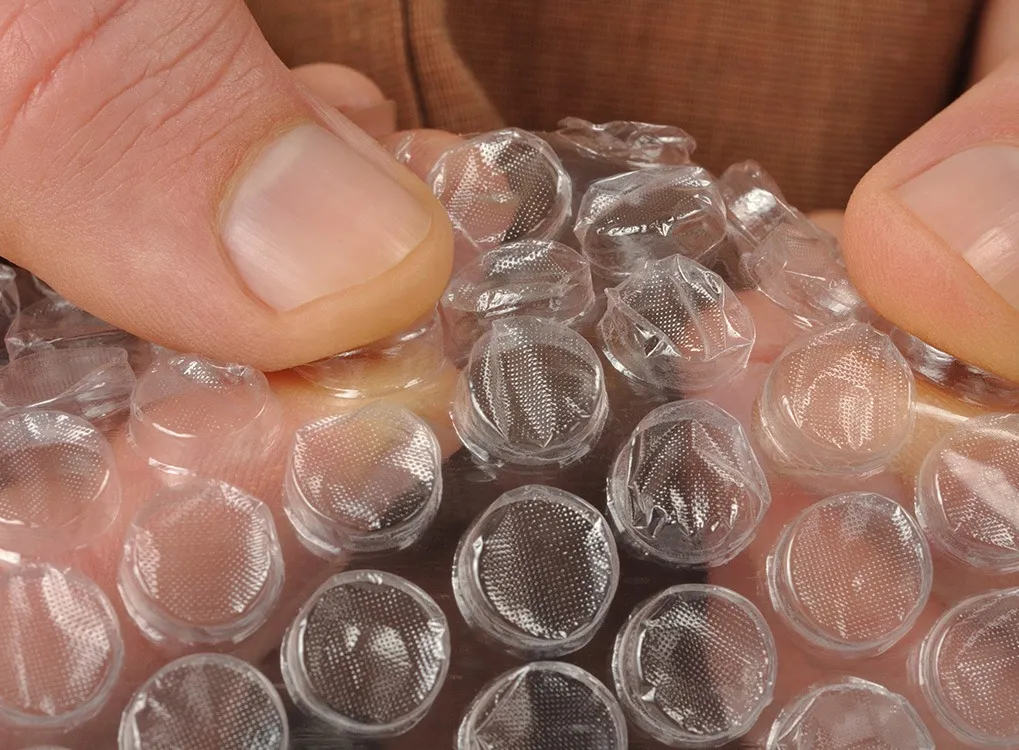
Can you imagine how little you would get done if there were bubble wrap covering your walls? Engineer Al Fielding and Swiss inventor Marc Chavannes probably didn't consider that when, in 1957, they invented bubble wrap while trying to create a textured wallpaper that would appeal to the Beat generation. Fortunately, the partners soon realized that their invention was much better suited as a packing material.

Despite the multitude of differences between humans and other creatures, there are also plenty of similarities. Many other animals have hair, a heart, eyes, and a powerful brain just like ours. But one feature we don't share with any other species is our chins.
"If you're looking across all of the hominids, which is the family tree after the split with chimpanzees, there [aren't] really that many traits that we can say are exclusively human," James Pampush, PhD, co-author of The Enduring Puzzle Of The Human Chin, told NPR. "The one thing that really sticks out is the chin."

Bamboo grows quickly—very quickly. Part of what makes it such an effective renewable resource is that it's the fastest growing plant on the planet. This record-breaker can grow an incredible 35 inches each day, at a rate of 0.00002 miles per hour, according to Guinness World Records.
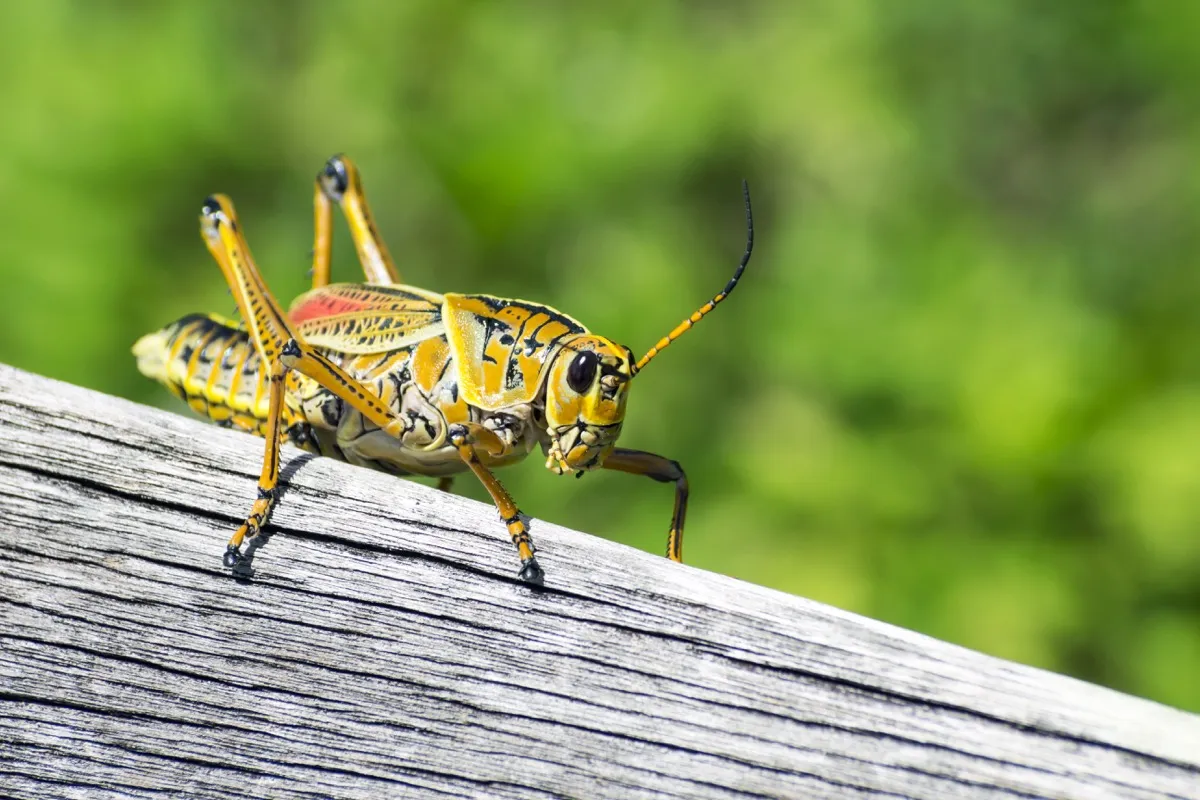
If you're not sure what the temperature is on hot summer day, just listen to the crickets. According to the Library of Congress, the musical creatures adjust their signature sounds according to the temperature, which means that if you count how many times a cricket chirps in 15 seconds and then add 37, you'll get a number that is a pretty close approximation of the current temperature in degrees Fahrenheit.

That puppy-dog look that your canine companion gives you is completely adorable, totally intentional, and something that they've developed since becoming man's best friend. A 2019 study in the Proceedings of the National Academy of Sciences explained that domesticated dogs have evolved to have facial muscles around their eyes that wild wolves lack.
These muscles give our pets the ability to make certain expressions that are intended to communicate with humans, such as raising their eyebrows to make them look like they're sad or pouting.

You've likely been saying "cheese" for the camera since you were a kid. However, in the early 19th century, people attempted to capture the ideal expression by saying "prunes." Apparently, the cue helped keep subjects' mouths "prim," according to the Washington Post. Former Full House stars Mary-Kate and Ashley Olsen have reportedly used the same trick for years in order to present the perfectly relaxed pout to the paparazzi.
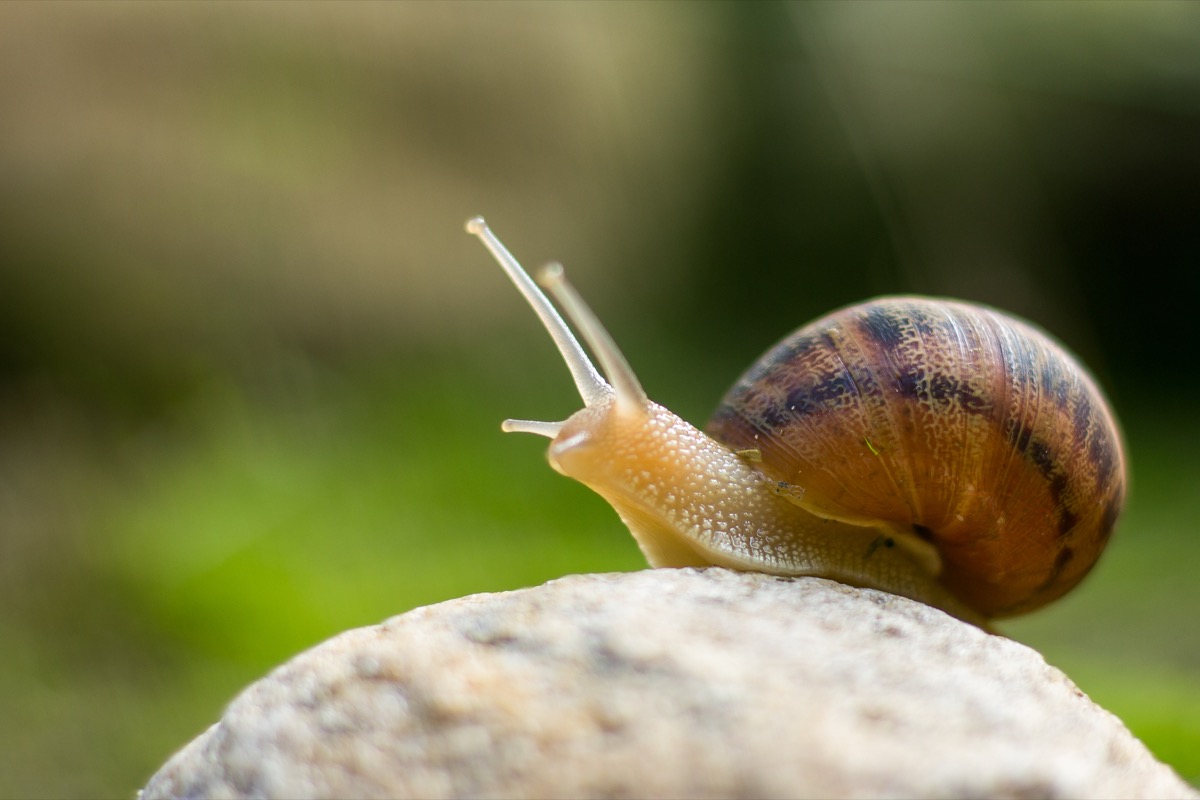
Snails come across as relatively simple animals with notable features including shells and slime. But some snail species have an unexpected attribute: They have a ribbon-like tongue and a jaw—called a radula—with thousands of tiny teeth that allow the hungry critters to rip their food into manageable pieces, according to the Natural History Museum of Los Angeles.

Back on July 25, 2001, "blood-red rain fell over the Kerala district of western India," according to The Guardian. The strange drops even "[turned] local people's clothes pink." Yellow, green, and black rain also fell in other districts in the area, according to The Hindu. It's believed that the rainwater turned various colors due to the fact that the wind had swept up similarly colored sand before it came down with the rain.
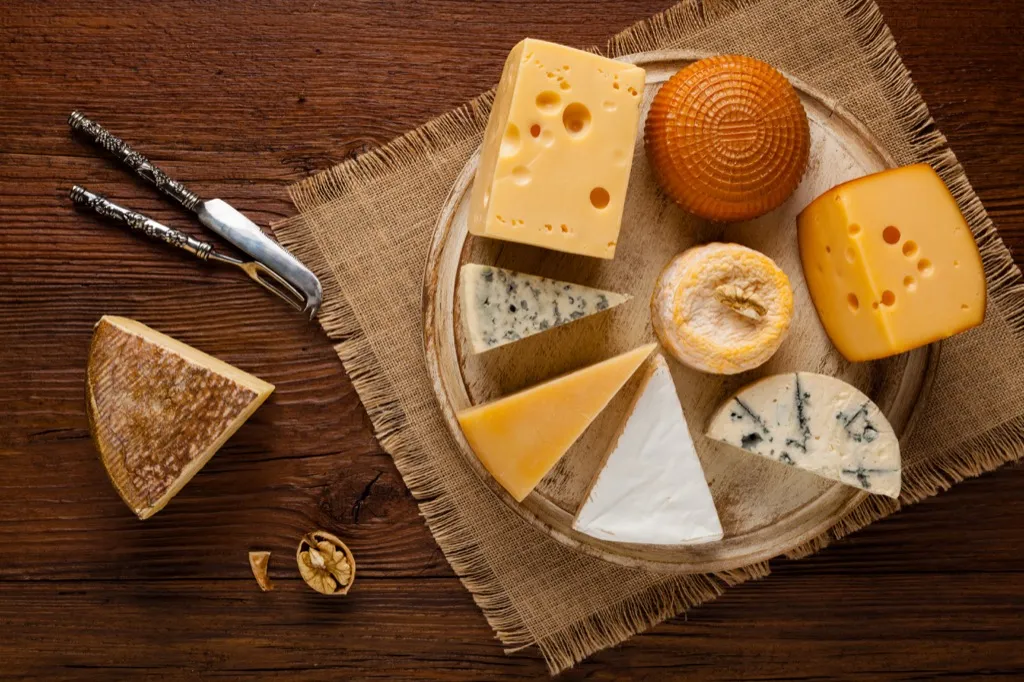
The Food: Bigger Than the Plate exhibit at the Victoria & Albert Museum in London proudly displayed five types of cheese made from microbes collected from the armpits, ears, noses, and bellybuttons of British celebrities. "Suggs, the singer for the ska band Madness, best known in the U.S. for its 1982 hit 'Our House,' chose to be immortalized in cheddar," according toSmithsonian.
The purpose of the project was apparently to change how people think about microbes. Whether or not that goal was achieved, the exhibit surely had people looking at cheese a little differently.

Earth doesn't feel so enormous once you learn that the sun alone makes up somewhere between 99.8 and 99.9 percent of all the mass in the entire solar system, according to the experts at University of California, San Diego. The rest is split between the planets and their satellites, as well as the comets, asteroids, dust, and gas.
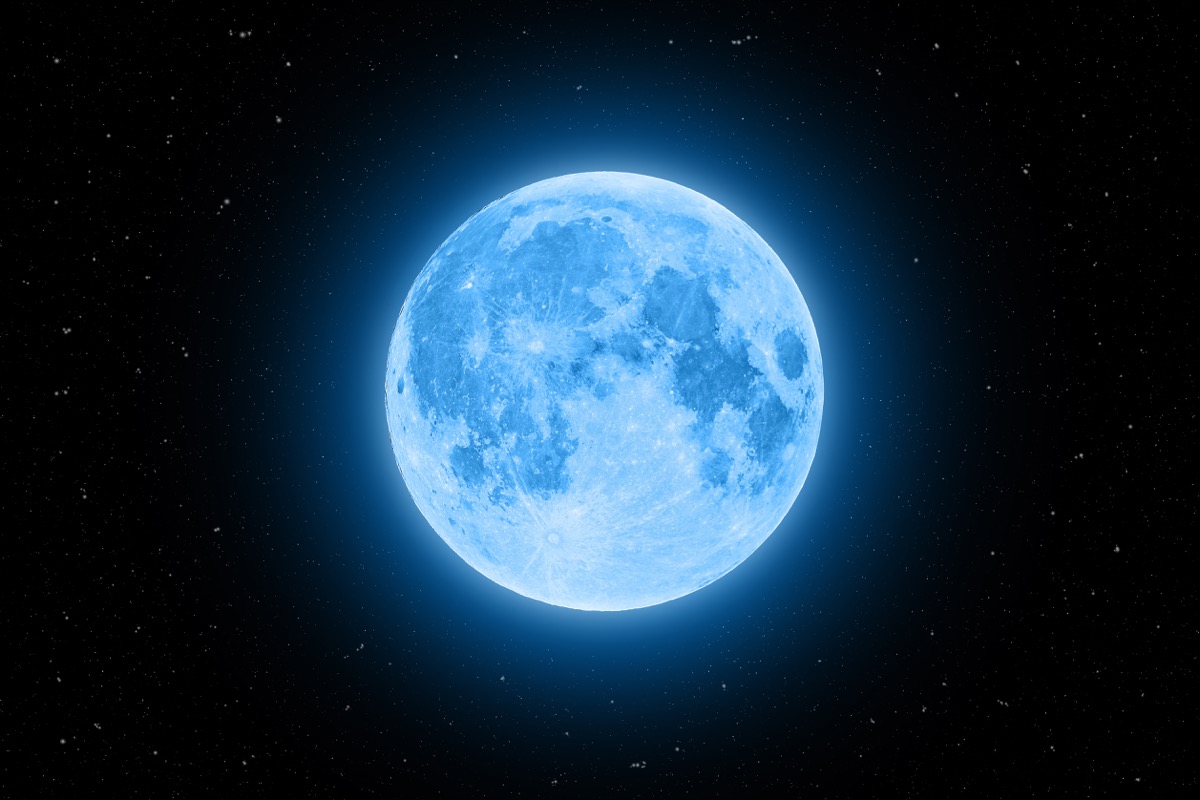
It's common knowledge that the moon travels around the Earth, but not everyone is aware of the fact that the distance between the moon and the Earth is increasing. As the relatively small spacial body continues its celestial spinning, it moves 1.48 inches away from our planet each year, which is around the same speed that human fingernails grow, according to the BBC.
This also means that the moon was likely much closer in the past. Scientists believe that when the moon was first formed, it was around 14,000 miles away. Nowadays, it's about 250,000 miles from us.

Plenty of people like to enjoy a little wasabi with their sushi—or a lot, depending on their tolerance for the stuff. But it turns out that real wasabi is pretty pricey (around $160 per kilogram), which is why 99 percent of what's called wasabi in the U.S. is actually a mix of horseradish and hot Chinese mustard, plus green dye to give it the right color, according to a report published in The Atlantic.

Between May 18 and July 26, the sun doesn't set at all in Sommarøy, Norway. That's why this village, which is located north of the Arctic Circle, wants to eliminate the concept of time so that they can get the most out of their 24 hours.
"There's constant daylight, and we act accordingly," said resident Kjell Ove Hveding in a statement. "In the middle of the night, which city folk might call '2 a.m.,' you can spot children playing soccer, people painting their houses or mowing their lawns, and teens going for a swim."
The residents went so far as to host a town hall about the proposed change in June 2019, although some critics asked how a lack of time would change what these folks already do.

Planes burn a lot of fuel transporting passengers around the world, which is why Qantas airlines, one of the largest carriers in Australia, has been looking for eco-friendly alternatives. One option? A blended fuel that is half conventional fuel and half cooking oil. The end result produces around 60 percent fewer carbon emissions than traditional options.
Qantas chief executive Alan Joyce told ABC, "We need to get ready for a future that is not based on traditional jet fuel or, frankly, we don't have a future."
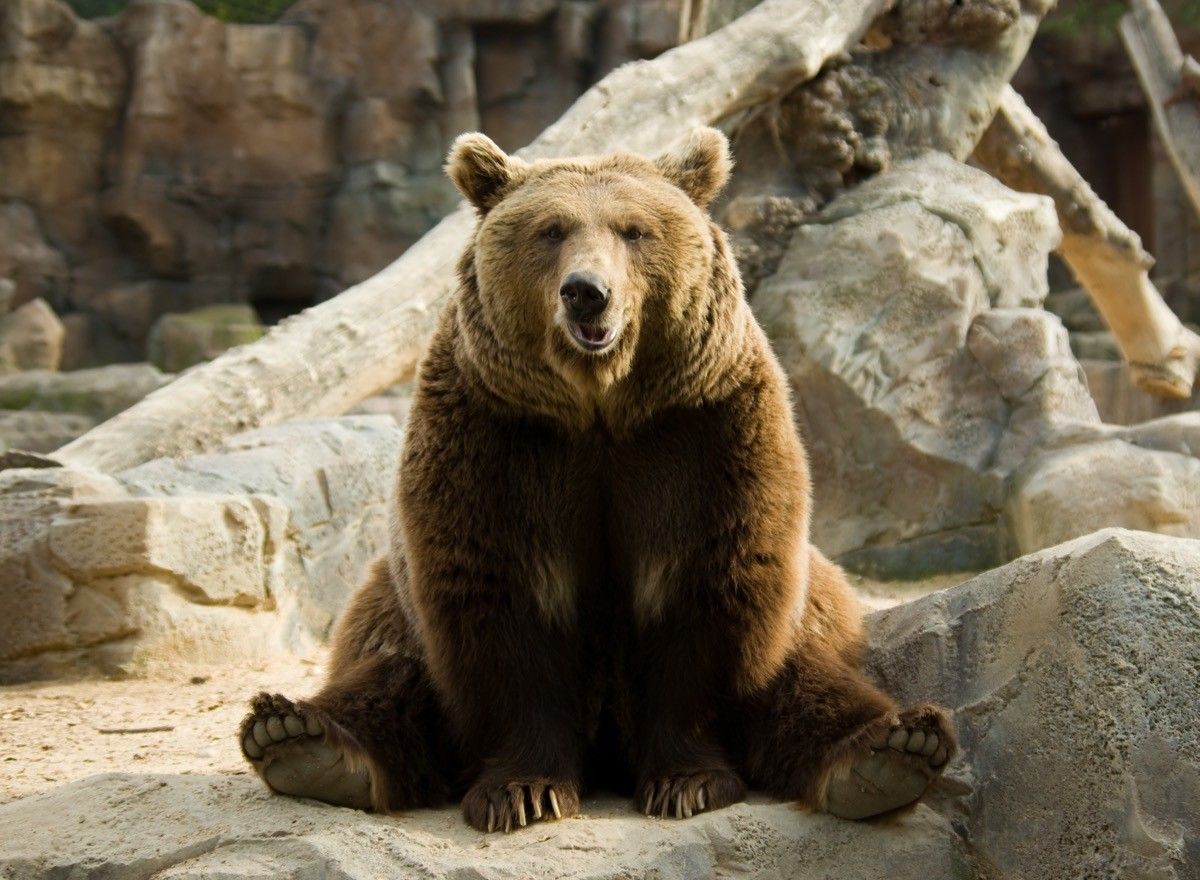
We tend to think about hibernating as something that bears and other animals do to make it through the winter months, but humans may also have a similar ability to put ourselves into the deep sleep. In fact, when a teenage stowaway survived a flight from California to Hawaii while hidden in the wheel well of an airplane in 2014, it's believed that he may have entered a state of hibernation due to the freezing temperatures and low oxygen levels in the wheel.
While that sort of travel should obviously be avoided, there may be another way that hibernating might allow us to endure lengthy trips. Scientific American explains that "figuring out ways to induce humans into a hibernation-like state might make it possible to launch humans into far-flung galaxies, as glorified in popular sci-fi movies like Alien and Prometheus."

The Römerwein, or Speyer wine bottle, is a 1.5-liter glass vessel found in a Roman nobleman's tomb in what is now Germany and dates back to sometime between 325 and 359 AD, which makes it at least 1,650 years old. No one is sure how the wine smells or tastes due to the fact that they can't predict how it would react to being exposed to the air if the bottle were to be opened.
"There's also the danger that, after all this time, it could have become poisonous, although scientists suspect the alcohol would not be dangerous, but just taste disgusting," writes German newspaper The Local.

Tornadoes are scary on their own, but add in some fire and they're like something out of an apocalyptic horror film. They're also totally real and called fire whirls, fire devils, or firenadoes. Typically, they occur during wildfires and are created by hot, dry air rising rapidly from the ground. On the opposite end of the whirlwind spectrum, tornadoes made of water are called waterspouts.
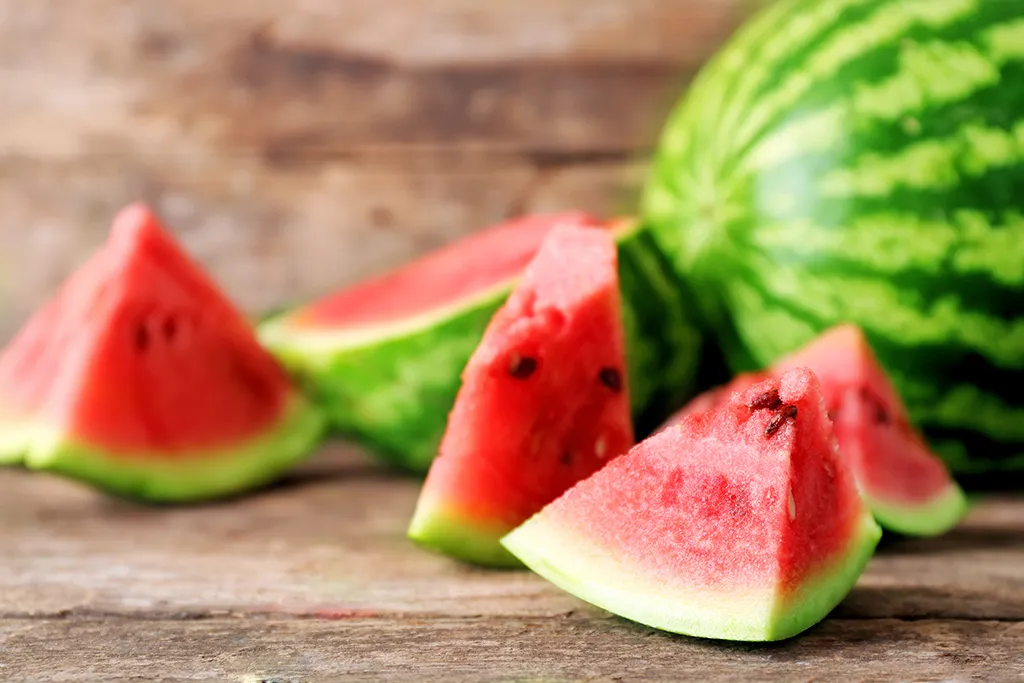
Watermelon is a summer staple and the preferred fruit for a delicious picnic. It's also Oklahoma's state vegetable—yes, vegetable. Senator Don Barrington, who sponsored the 2007 bill that saw the watermelon earn the honor, reportedly backed up the decision by saying that watermelon comes from the cucumber and gourd families, which are classified as vegetables.
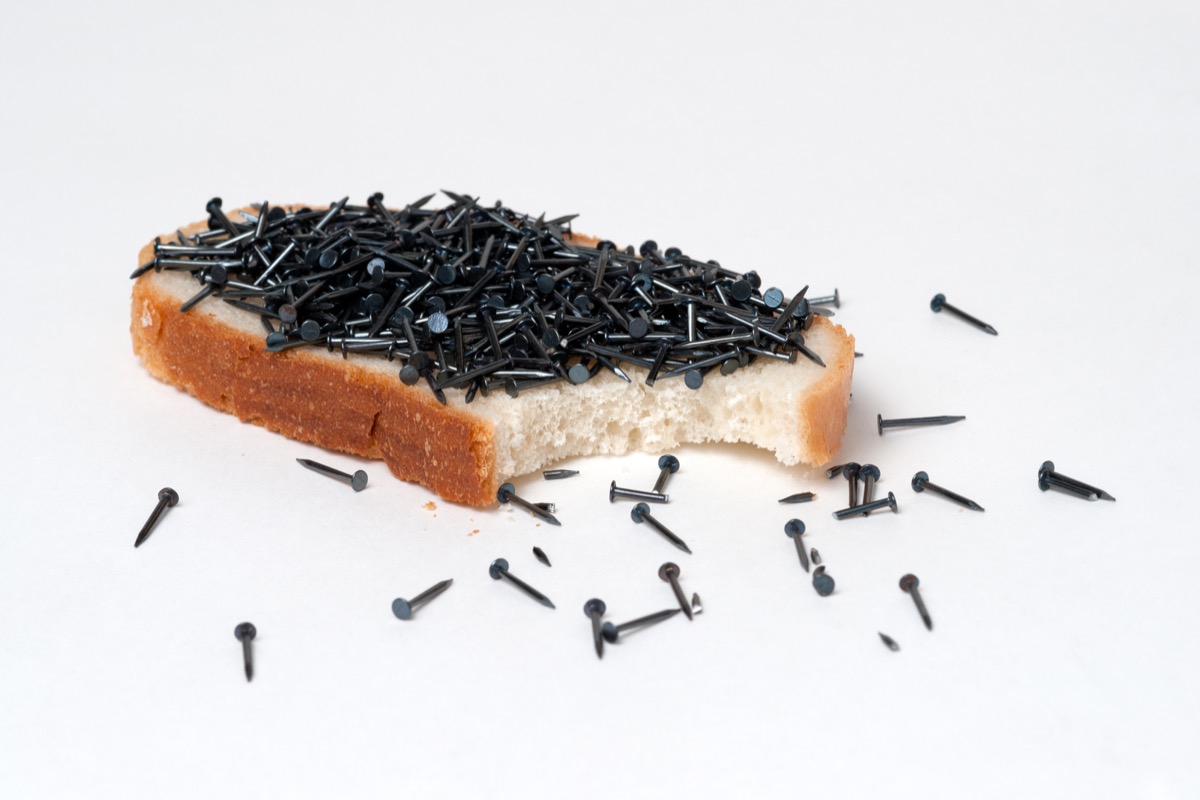
When a 43-year-old man named Bhola Shankar visited a hospital in northwest India because he was experiencing abdominal pains, doctors found 116 iron nails in his stomach that were each 2.5-inches long. Luckily, none of the nails—which the man had reportedly eaten, although he couldn't give a reason as to why—had injured his stomach lining and the medical staff was able to successfully remove them. The ordeal could have been a result of pica, a disorder that involves the ingestion of items with no nutritive value, such as soil, hair, wood, and metal.
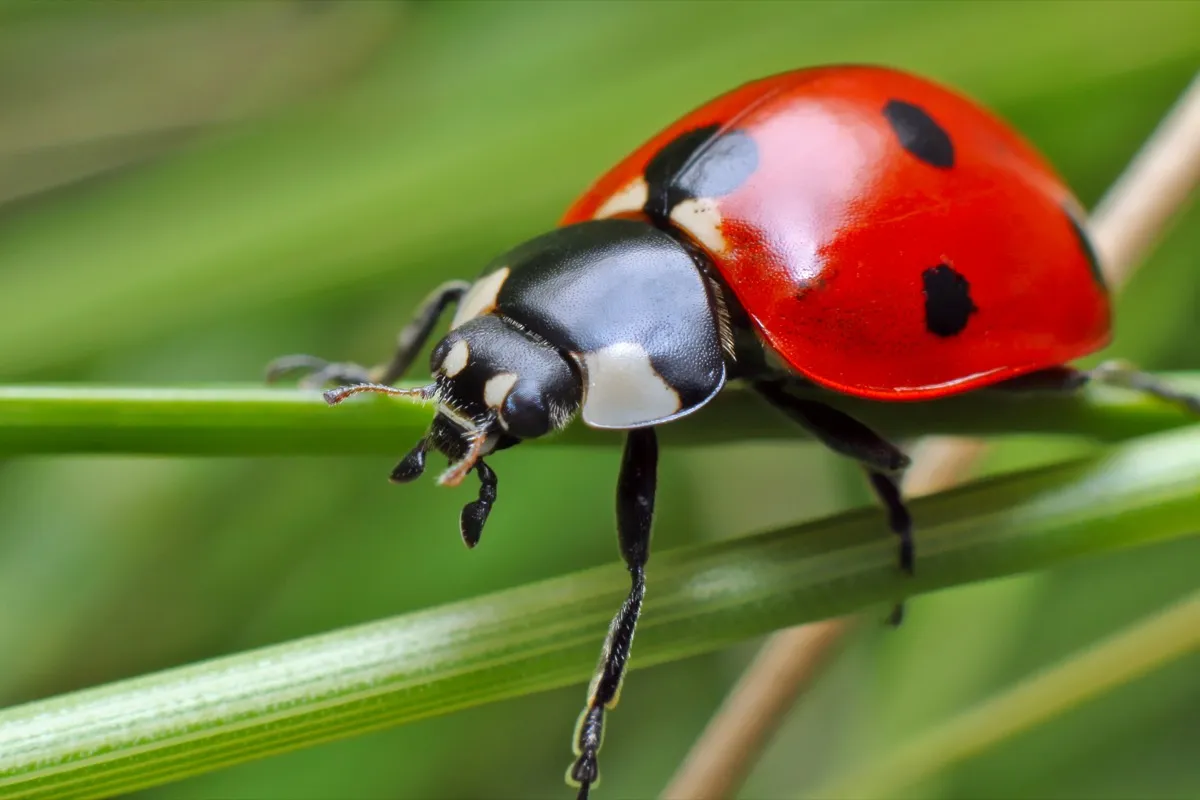
It's hard not to smile when you spot a ladybug—but they may not seem so cute once you find out they're cannibals. An adult ladybug typically eats around 50 aphids (sap-sucking insects that gardeners despise) per day, but when there's not enough food around, they'll devour ladybug larvae and even other young ladybugs, which both have shells that are soft enough for an adult ladybug to chew, according to the BBC.
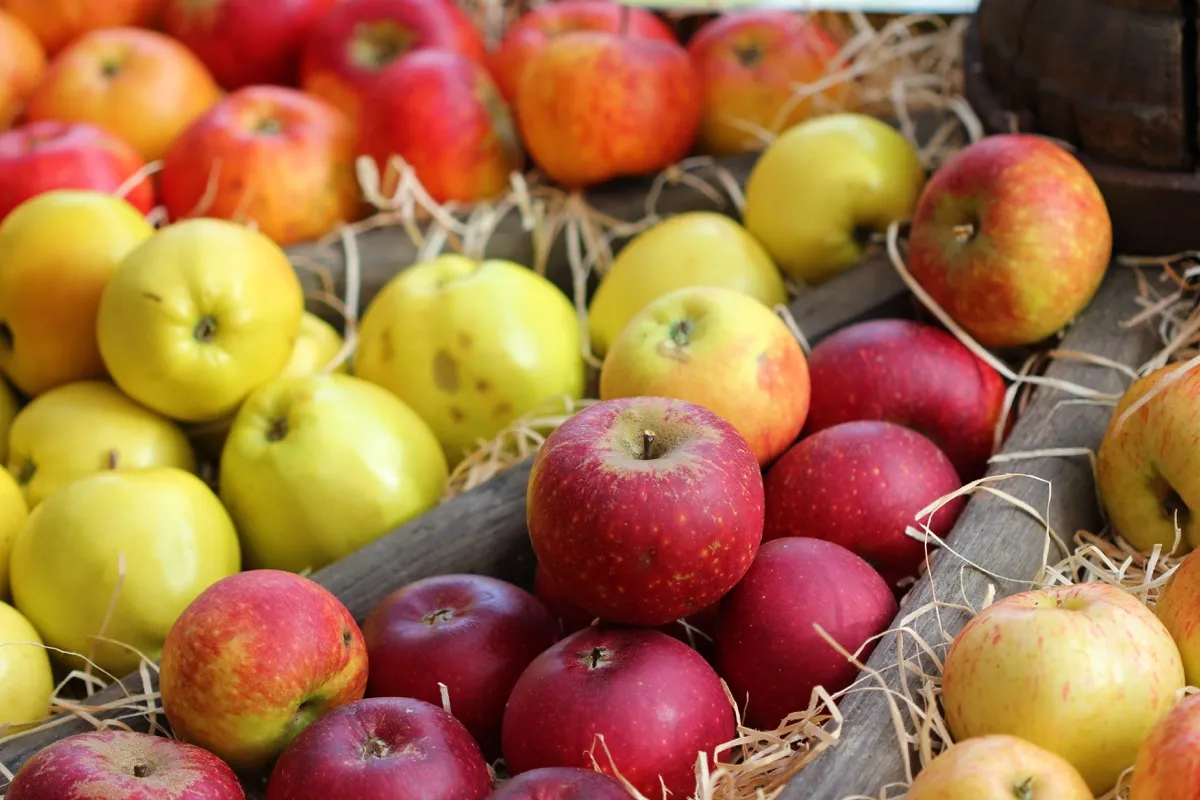
The fruit you buy at the grocery store isn't as fresh as you think it is. Frankly, thanks to the picking, shipping, and storing process, the apples that you find at your local store might already be a year old by the time you pick them up, according to Today.
The U.S. Department of Agriculture explains how they manage to make it so long, writing, "To slow the proverbial sands of time, some fruit distributors treat their apple bins with a gaseous compound, 1-methyl cyclopropane (1-MCP). It extends the fruits' post-storage quality by blocking ethylene, a colorless gas that naturally regulates ripening and aging."
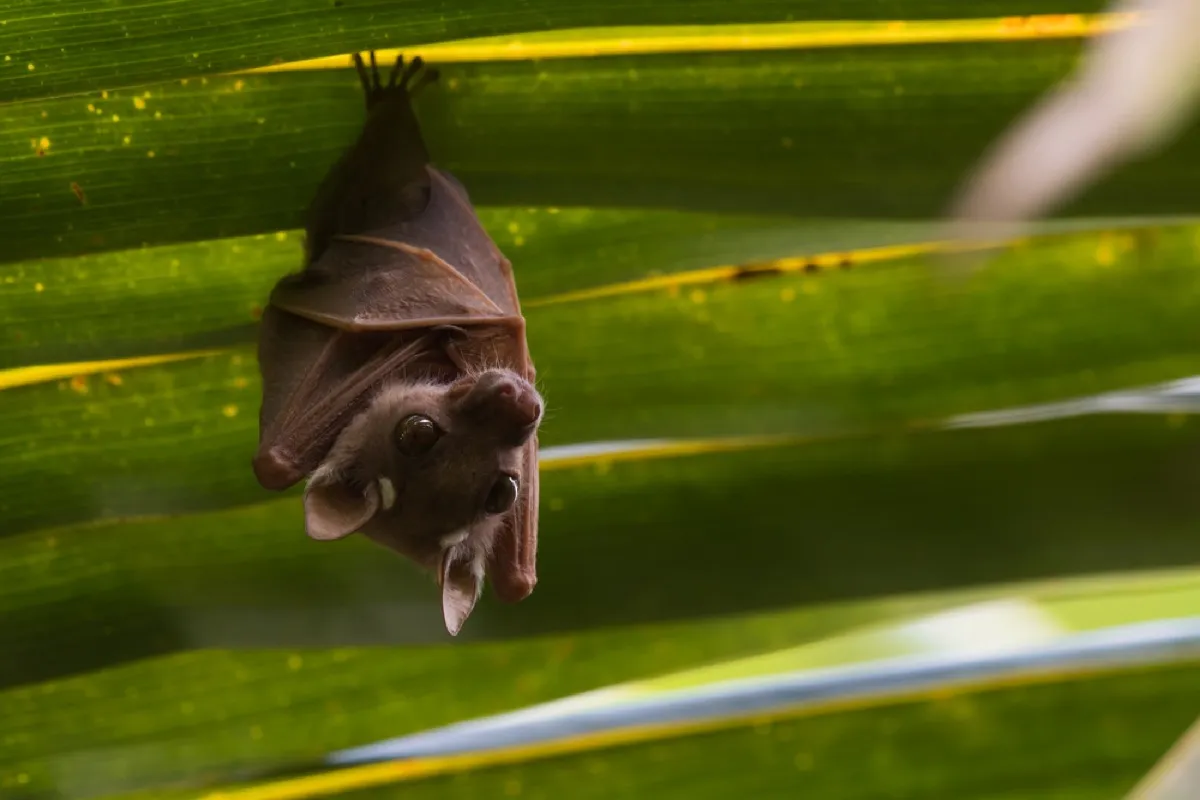
Bumblebee bats, which are also known as Kitti's hognose bats, are "the smallest bat[s] in the world, maybe even the smallest mammal," Rob Meis, director of the Organization for Bat Conservation, told National Geographic. He explained that the tiny flyer doesn't even weigh two grams, which is less than the weight of a dime.

In 2005, a 22-year-old man named Ronald MacDonald was charged with stealing money from a safe at a Wendy's fast-food restaurant in Manchester, New Hampshire. However, the Associated Press noted that there was no relation to the criminal who was caught red-handed and the red-nosed clown with the very similar name.

When you hear about a blizzard, you probably envision the kind of blustery whiteout of snow that happens during the winter. But a "black blizzard" is instead a dust storm that's so intense it blocks out the sun and throws the surrounding area into darkness.
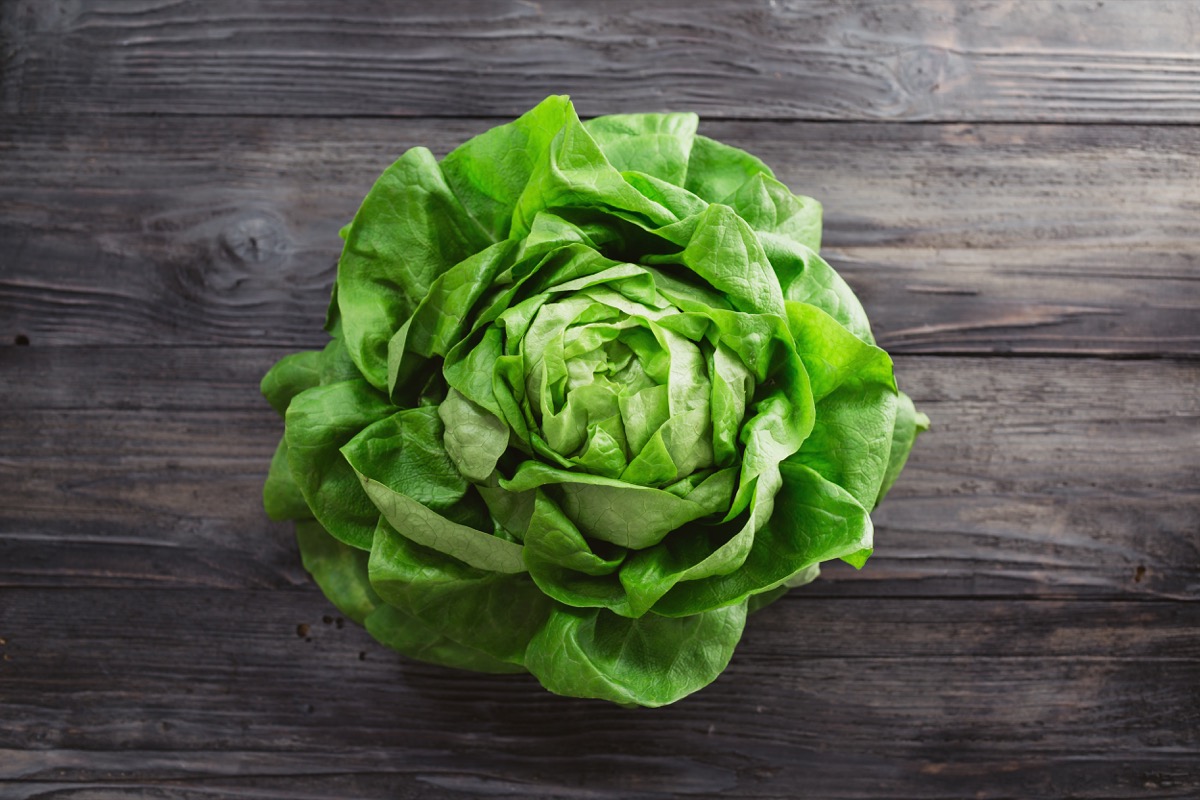
It may not seem like lettuce and sunflowers have much in common, other than the fact that they're both plants and they both have leaves. Frankly, there are plenty of ways that they're quite different. For instance, lettuce grows close to the ground while sunflowers reach rather impressive heights. Despite those differences, lettuce is of the Lactuca genus, which is a member of the Asteraceae family, also known as the aster, daisy, or sunflower family. Who knew?!

Would you vote for a purring politician? Back in 1997, when there weren't enough eligible human candidates up for the role, a cat named Stubbs was elected as the mayor of Talkeetna, Alaska, according to CNN. He served the city in his honorary position for two decades before passing away in 2017. A Twitter account run on behalf of the friendly feline wrote, "20+ years. Several uncontested elections. Thousands of naps. We had a good run. #RIPStubbs"

You might think that cheese, chocolates, or cookies are the ideal food pairings for a glass of champagne. But according to Marie-Christine Osselin, Moët & Chandon's wine quality and communication manager, French fries might actually be the best thing to nosh with your bubbly. Osselin told The Drinks Business that the saltiness and crunchiness of fries complement the acidity and bubbles in the champagne.

You might have gone your entire life without knowing what urea is, but now you'll be able to tell others that it's a chemical found in human urine. It's also something that's added to some tobacco products in order to enhance their flavor, according to the Centers for Disease Control and Prevention (CDC).
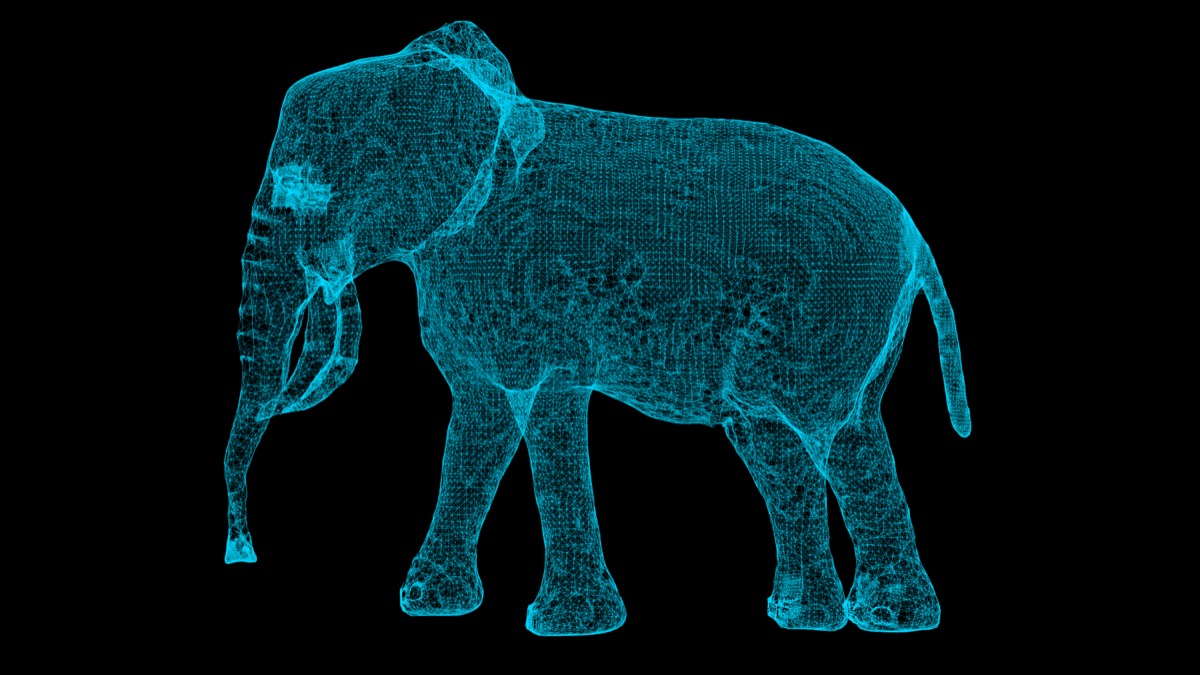
Animal lovers who are concerned about the treatment of vulnerable creatures in professional settings may be hesitant to attend a traditional circus. But if you still want to enjoy the majestic abilities of the animals without worrying about their wellbeing, you might want to get tickets to Circus Roncalli, which stopped using animals in 2018. Instead, this cruelty-free circus uses 3-D holograms of horses, fish, and elephants instead of living animals to perform crowd-pleasing tricks.

It's well known that Venice is sinking, but Indonesia's capital of North Jakarta might also be going under. Due to rising sea levels and sinking land, which is a result of climate change, 95 percent of the area might be submerged by 2050, according to a report by Wired.
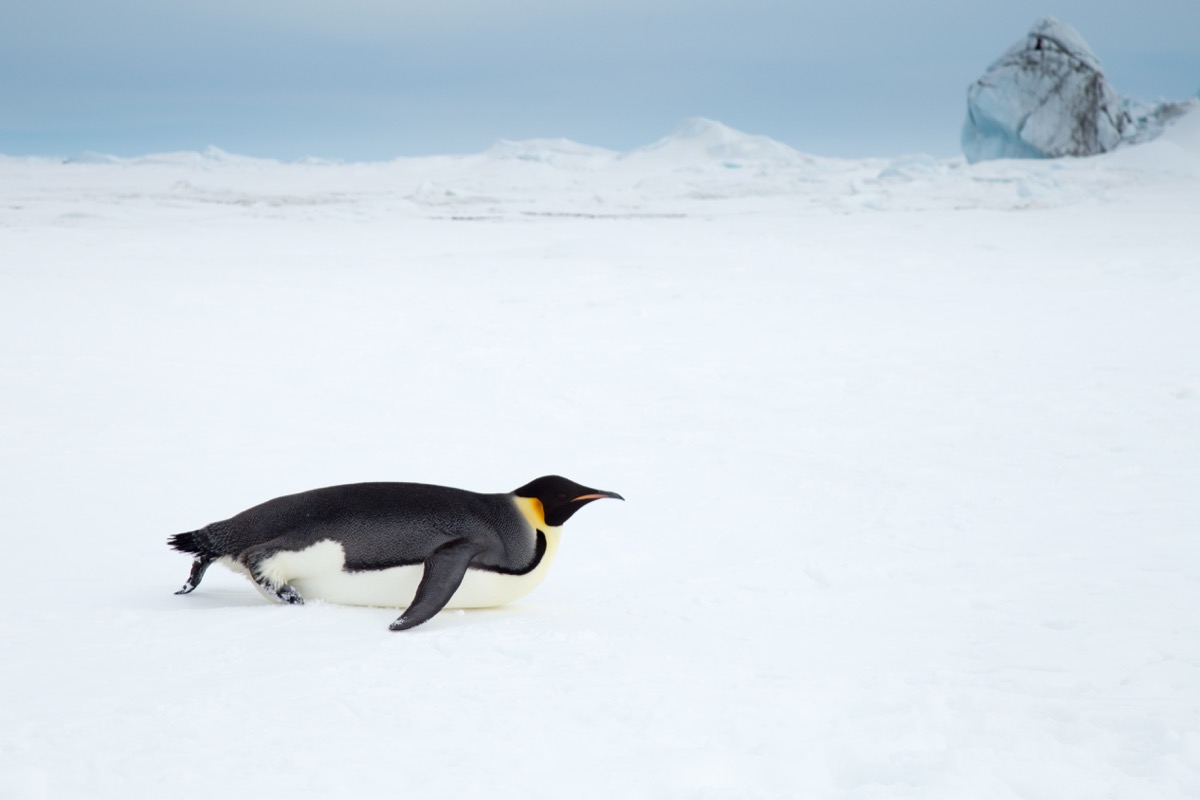
Norway once made a king penguin a knight. In 1972, lieutenant Nils Egelien chose a penguin living at Scotland's Edinburgh Zoo to be the mascot of the King's Guard. Deemed Nils Olav, the bird was followed by a second penguin who took over the name and rank before a third bird came onto the scene and in 2005 was promoted from honorable regimental sergeant major to honorary colonel-in-chief.
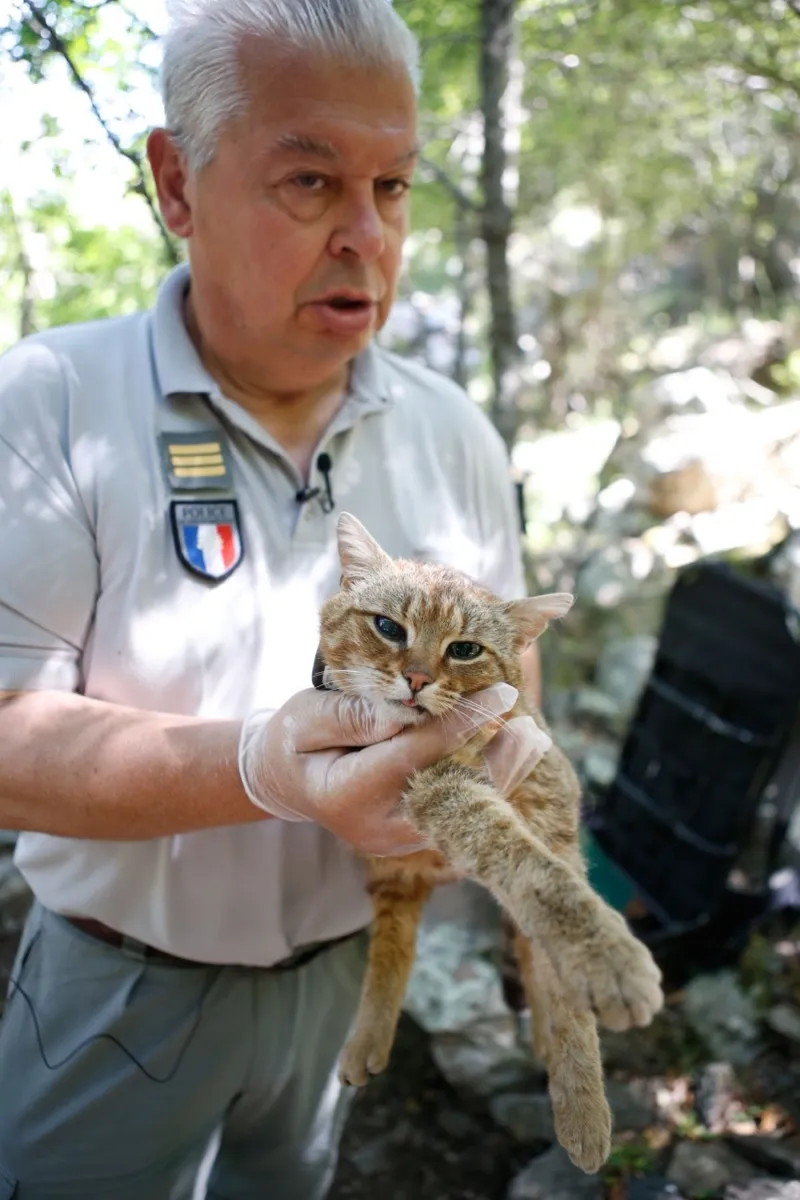
For years, there have been rumors and reported sightings of the ghjattu-volpe, or "cat-fox," on the Mediterranean island of Corsica. Unfortunately, no one could confirm whether the creature was real or simply a myth circulated by fearful farmers (if you're wondering, these kitties are not friendly). That changed in 2019 when a genetic analysis proved that a wildcat from the area may be of a previously unrecognized species.
"We believe that it's a wild natural species which was known but not scientifically identified because it's an extremely inconspicuous animal with nocturnal habits," Pierre Benedetti, chief environmental technician of the National Hunting and Wildlife Office in Corsica, told CNN. The cats are bigger than the typical house cat, have large tails, and "highly developed" canine teeth.
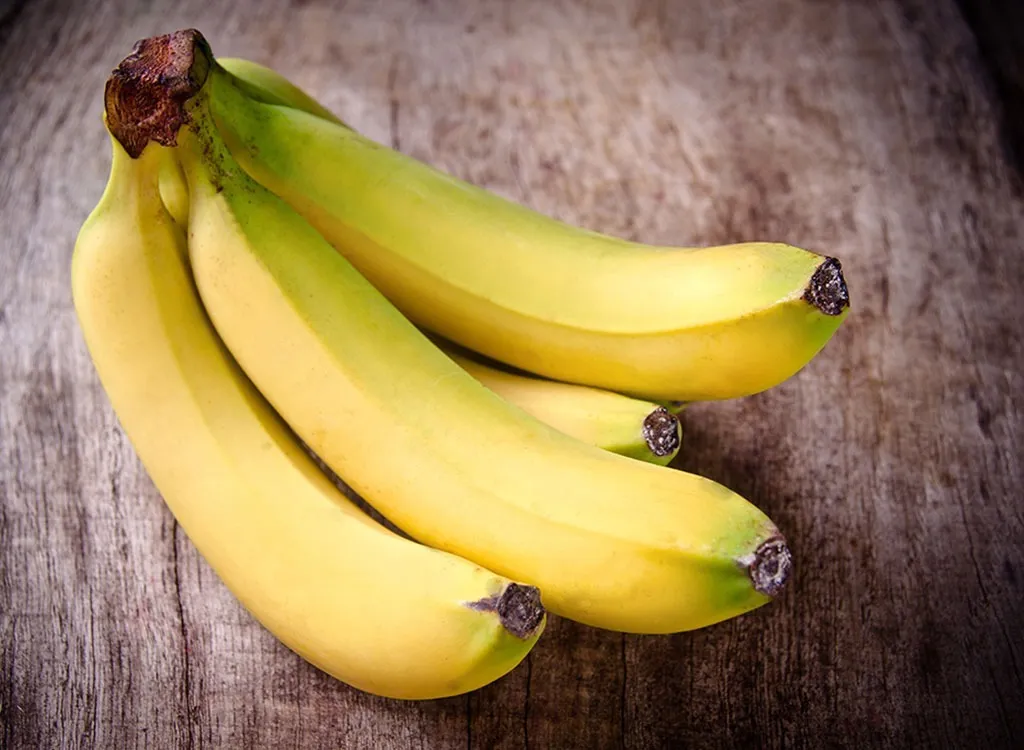
You might think that all bananas are pretty much the same—yellow, long, slightly curved, and oh-so-sweet—but there are more than 500 different kinds of bananas. Fruit lovers in the United States tend to eat Cavendish bananas, but there are also Baby (Niño) bananas, Orinoco bananas, Ice Cream (Blue Java) bananas, Manzano bananas, and even red bananas, among other options.
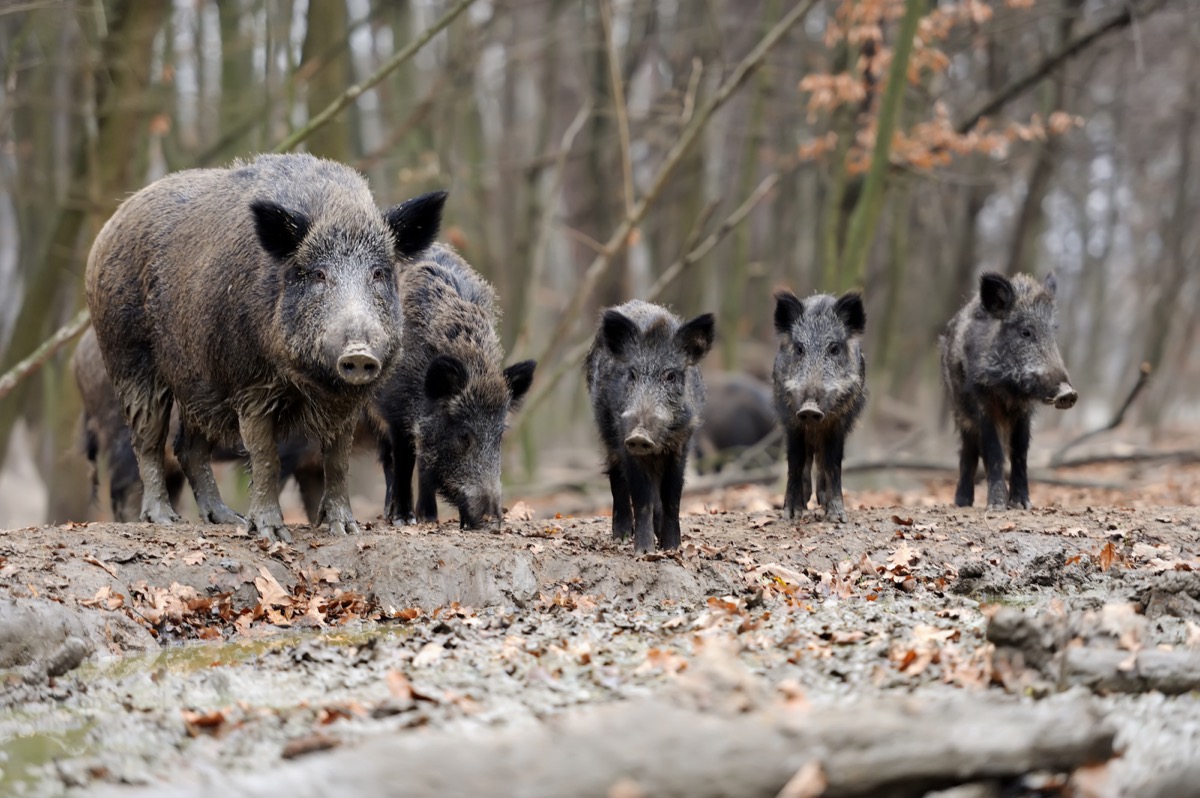
While you might not spot a lot of wild pigs roaming around your particular neighborhood, they still cause quite a problem. According to The Public Library of Science, Gail Keirn, a public affairs specialist at the USDA-APHIS-WS National Wildlife Research Center, estimated that there are between 5 and 6 million invasive swine in at least 35 states. These problematic hogs cost the country well over a billion dollars every year to control and deal with the damage they've done.

There's a reason why it's nearly impossible not to laugh when someone is tickling you—and it has nothing to do with the situation being overwhelmingly funny. Instead, your body is likely employing a natural defense mechanism.
Scientists from the University of Tuebingen in Germany found that when we're being tickled, the part of the brain that anticipates pain is triggered. Because our brain thinks we're in trouble, we might strike at whoever is tickling use or we might laugh, which is a sign of submission.

The people behind Cards Against Humanity, the game responsible for hours of fun with your family and friends, are the founders of Hawaii 2, a private island in the middle of Maine. During their 2014 holiday promotion, the company aimed to raise money for charity by encouraging participants to spend $15 to buy a package that included, among other things, one square foot of the island.
In 2015, the company announced that the 250,000 folks who contributed would receive a "deed, a map, and a small flag" to recognize their partial ownership.

In the Lord of the Rings stories, Mordor is where the villain Sauron resides. And while J.R.R Tolkien's Middle Earth was merely a fantasy, Mordor is a real place. Although it's not the base of evil power in our realm, it is instead a dark and mysterious place on Charon, one of Pluto's moons, that sometimes appears to be the color of a dried bloodstain, according to USA Today. (And yes, the spot was named after the book, not the other way around.)
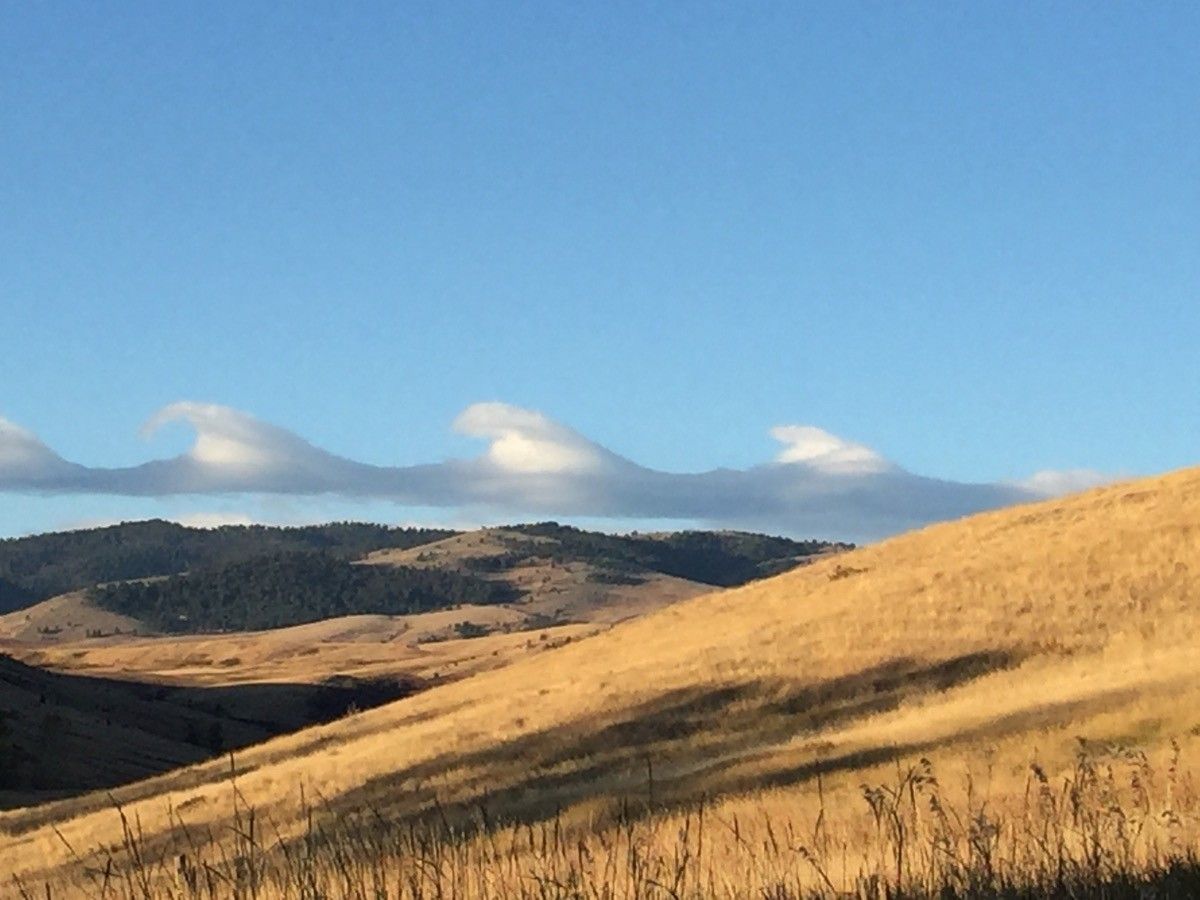
We tend to think of waves occurring in the ocean. But there are actually clouds that look like waves of water. In June 2019, some lucky people in Roanoke, Virginia, witnessed what are called Kelvin-Helmholtz clouds when they appeared in the sky above Smith Mountain.
The formation can occur on windy days, "when there is a strong vertical shear—meaning the wind is blowing faster at upper levels in the atmosphere compared to the wind at lower levels, causing the clouds to look like rolling waves," according to ABC News.
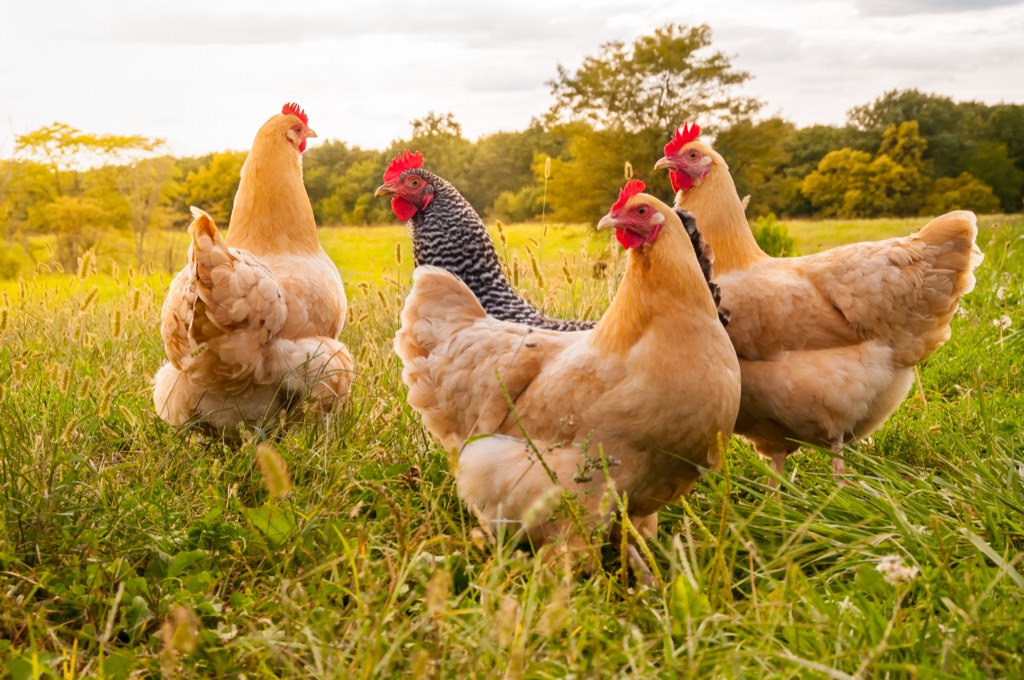
Why did the chicken cross the road? Because it could do so safely, of course. For $13, you can order a harness that is suitable for either a chicken or a goose. The harnesses even feature snazzy bowties for fancy fowl.
RELATED: 175 Random Facts So Interesting You'll Say, "OMG!"
Do They Still Sell or Make Cheese Tidbits
Source: https://bestlifeonline.com/weird-questionable-facts/